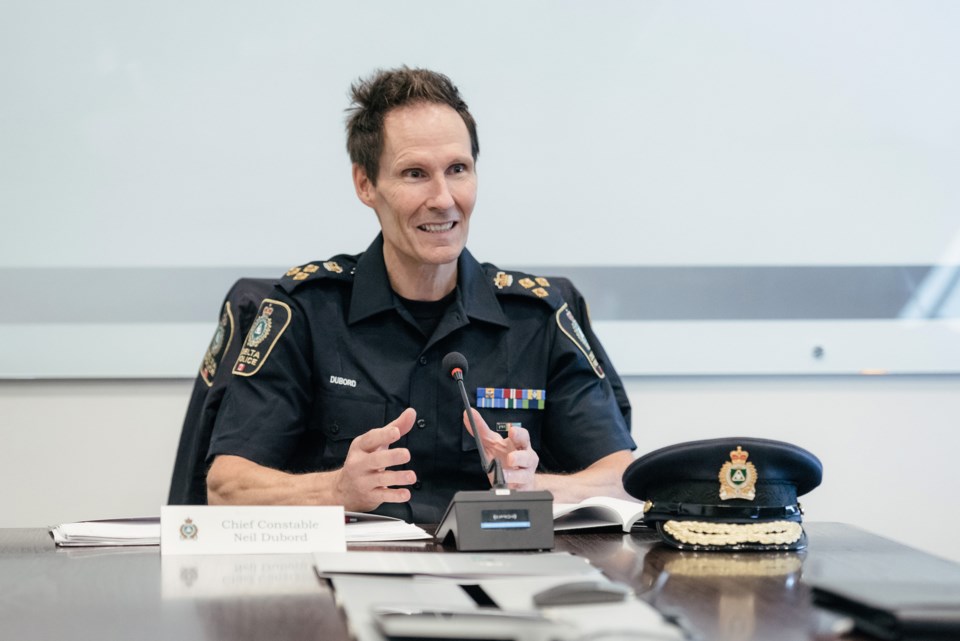It’s a good step but there’s also some pretty major gaps that need to be addressed.
That was the message from Police Chief Neil Dubord during a Delta Police Board discussion last week (June 22) on no enforcement coming to B.C. for people carrying small amounts of certain street drugs.
Dubord commented on the announcement last month by Carolyn Bennett, Federal Minister of Mental Health and Addictions and Associate Minister of Health, that B.C. will be granted a three-year exemption under the Controlled Drugs and Substances Act to remove criminal penalties for those who possess a small amount of drugs for personal use.
The exemption will be in effect from Jan. 31, 2023, to Jan. 31, 2026.
The province says it will work with a broad range of partners to implement the policy change, including the federal government, health authorities, law enforcement, people with lived and living experience, Indigenous partners and community organizations to establish public health and public safety indicators in order to monitor and evaluate the outcomes.
The province explained that the substances remain illegal, but adults who have 2.5 grams or less of the certain illicit substances for personal use will no longer be arrested, charged or have their drugs seized.
Instead, police will offer information on available health and social supports and will help with referrals when requested.
The BC Association of Chiefs of Police (BCACP) is pleased the exemption was lowered from an originally proposed 4.5 grams, Dubord said.
He told the police board that Delta Police have already not been “very aggressive” when it comes to charging for simple possession, particularly in circumstances when there’s no drug dealing involved. He said officers understand the issue of addiction and the role police have in pointing people to the right resources for assistance.
“We still believe the backup services, for those facing addictions, we don’t have this area of resources available in a timely fashion to help people look after their addition needs or their social needs, whatever that may be, so, we’ll continue to work certainly as a Delta Police Department senior management team and the BC Association of Chiefs of Police to look for those support mechanisms,” he said.
Dubord later noted that while some people will be able to avoid criminal charges for possessing small amounts of certain drugs, which is a good first step, that lack of services and supports need to accompany what he says is a good first step.
He also acknowledged the role of police officers is evolving to include being front-line social workers to help people find the right resources.
B.C. is the first province in Canada to receive an exemption from Health Canada.
During the board’s discussion, Dubord agreed there’s still a gap when it comes to the issue of people abusing prescription medications, saying the new exemption only focuses on street-level drugs such as cocaine.
Deputy Chief Harj Sidhu said the issue has been discussed as well with College of Physicians and Surgeons of BC, but that will be deal with separately.
As far as prescription drug abuse, Sidhu said it is a serious issue in Delta that can be seen in some calls for service including construction accidents.
The goal of the new exemption is to focus on street-level drugs, harm reduction and helping remove the stigma, said Sidhu.
However, the issue of safe supply is also one that has to be addressed.



